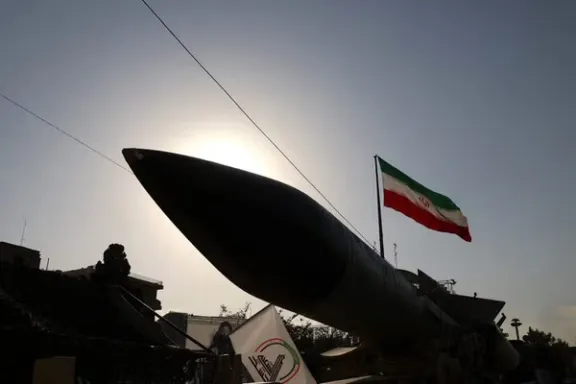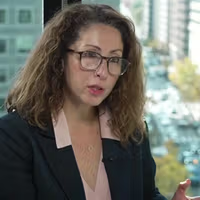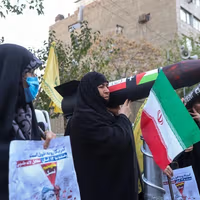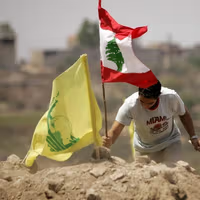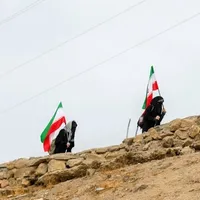Turkish Defense Minister Criticizes Iran's Stance on PKK
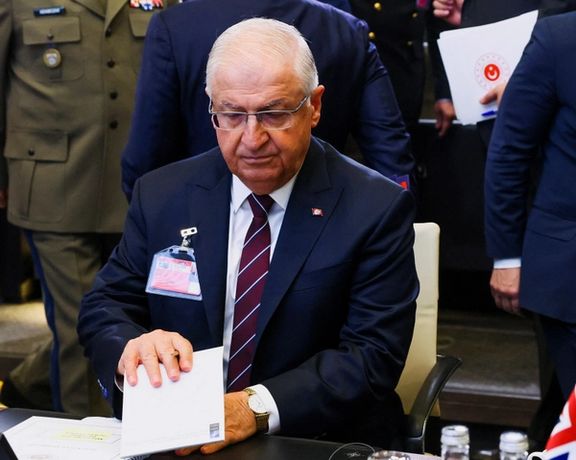
Turkish Defense Minister Yaşar Güler voiced his frustrations regarding Tehran's lack of cooperation in combating the PKK.

Turkish Defense Minister Yaşar Güler voiced his frustrations regarding Tehran's lack of cooperation in combating the PKK.
Despite Ankara's efforts to engage with Iran on their mutual security threat, discrepancies in their approaches continue to pose challenges when combating the group both deem terrorist.
Güler, in an interview with Milliyet, detailed how Turkey has actively shared intelligence with Iran about the locations of PKK operatives, expecting collaborative counterterrorism measures.
"We clearly monitor and say, 'Look, these individuals (terrorists) are at this address, in this house,' but the response we typically receive from Iran is, 'No, we checked that address, and such a person does not exist.' Of course, this is unacceptable," Güler expressed.
His remarks coincide with Nechirvan Barzani, President of Iraq's Kurdistan Region, making a visit to Iran last week. Given the recent IRGC missile attack on the Kurdistan Region, the timing and nature of Barzani's visit suggest they likely centered on shared security concerns.
The PKK, or Kurdistan Workers' Party, has been a longstanding insurgent force in the region, engaging in guerrilla warfare primarily in southeastern Turkey and northern Iraq since 1984. Initially fighting for an independent Kurdish state, the PKK’s focus shifted in the 1990s toward autonomy and enhanced rights for Kurds within Turkey.
The organization is designated as a terrorist group by Turkey, the United States, the EU, and others, though some continue to debate the appropriateness of the classification, suggesting that the PKK’s current activities do not systematically target civilians or constitute organized terror operations.
While both nations engage in joint efforts to address regional security challenges, including drug trafficking and terrorism, political and ideological differences frequently overshadow the collaboration. The tension is particularly palpable in conflict zones like Syria and Iraq where both countries seek to assert influence, often at odds with one another.
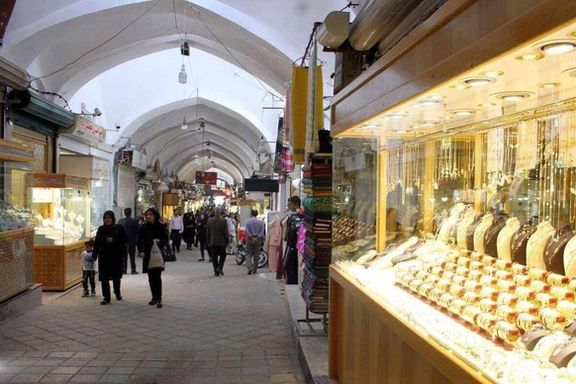
Following a meeting between gold retailers and government representatives, Iran International has learned that Iranian security agents arrested several gold merchants amid the ongoing strikes.
Reports indicate that a verbal altercation ensued during Sunday’s meeting following threatening statements from a representative of the Industry Ministry regarding potential legal action against protesting gold retailers.
Gold sellers in Tehran's market began their strike late April – with other retailers joining in from other cities, including Tabriz, Ardabil, Kermanshah, Hamedan, and Mashhad. The primary grievance driving the strike is the reactivation of the Comprehensive Trade System coupled with the introduction of a Capital Gains Tax.
The meeting was attended by representatives of the Ministry of Intelligence, the Ministry of Industry, the Tax Organization, members of the Tehran Gold and Jewelry Union, and several market traders.
Security agents present detained some of the gold retailers who were filming the meeting. As of the time of reporting, it remains unclear whether these individuals have been released.
The meeting reportedly ended without any resolution to the talks between the parties.
Last week, regime agents sealed a number of gold retailers' shops in Mashhad in retaliation to the merchant’s participation in the nationwide strikes.
In further response to the strikes, Iran's Chamber of Guilds has issued a formal threat of legal action against the Ardabil Gold Dealers Union in northern Iran, as revealed in a letter obtained by Iran International.
Similar protests have occurred last year in Iran, when comparable tax proposals were put forward.
Why Gold Retailers Across Iran Are Striking
The strikes commenced in Tehran's bazaar on April 28, spurred by the approval of new tax legislation by the Iranian parliament. Gold retailers shuttered their shops in protest against the Capital Gains Tax and the reinstatement of the Comprehensive Trade System.
Other gold merchants joined in quickly, expanding the strikes across Iranian cities.
Gold retailers have urged for the complete removal of the requirement to register information in the Comprehensive Trade System, which mandates that all manufacturers and sellers, both wholesale and retail, must register their transactions.
The newly introduced tax legislation requires gold retailers to pay taxes on gold assets surpassing 150 grams.
Iranian gold retailers assert that they have the "most transparent trade performance" and that they already make the "highest tax payments compared to other businesses."
"The tax burden on gold retailers in the past year [Iranian calendar year starting March 2023] averaged 96 million rials [approximately 15,000 USD], equating to only 8 million rials [approximately 129 USD] per month," Mehdi Movahedi, spokesperson of the Iranian National Tax Administration, stated in a television interview last month.
Nader Bazarafshan, the head of the Tehran Gold, Coin and Jewelry Union, stated in a media interview that "gold retailers have no issue with the tax system."
He added that their objection lies with the Comprehensive Trade System's requirement to record their capital and inventory information. Bazarafshan emphasized that gold retailers are questioning why they should register their ancestral capital in the Comprehensive Trade System.
According to the Gold Dealers Union, "two million people" are employed in this trade.
Impact on the Average Iranian
As the Iranian rial depreciates against major currencies, gold, much like real estate, automobiles, and imported goods, is seen as a crucial capital investment by Iranians to safeguard their savings.
Iranian gold retailers are opposing the regulations of the Comprehensive Trade System, particularly the requirement for them to input their customers' information.
They believe that this obligation, combined with the recently implemented Capital Gains Tax, will place an additional financial burden on ordinary Iranians who are already finding it challenging to save money to buy gold as a way of safeguarding their earnings.
Gold retailers also point out that under this Capital Gains Tax, people will be discouraged from purchasing gold.
Some experts have cautioned that this could exacerbate inflation, which has already surpassed an annual rate of 50%, according to the Central Bank of Iran.

Narges Mansouri, a 46-year-old Iranian labor activist, is in a critical condition on the twentieth day of her combined hunger and medication strike at Evin Prison in Tehran.
Medical reports have highlighted severe complications including kidney damage, neurological issues, and an elevated risk of cardiac arrest due to her ongoing strike.
A source close to Mansouri's family disclosed to Iran International that the prison's medical staff have described her condition as "dangerous".
The activist began her strike on April 23 to protest the neglect of her legal case and the financial demands made by the court which threatens to seize her mother's home unless a payment of 1.5 billion rials (about $2,500) is made. She is also demanding her own release.
On April 29, the situation became publicly known through the Instagram page of Narges Mohammadi, another imprisoned human rights activist at Evin, who highlighted the severity of Mansouri's condition and her ongoing strike.
Mansouri is renowned for her activism as part of the Syndicate of Workers of Tehran and Suburbs Bus Company. She was among 14 women who, in 2019, demanded the resignation of Ali Khamenei, leader of the Islamic Republic. The act led to her arrest, and she was sentenced to five years for "assembly and collusion against national security" and an additional year for "propaganda activities against the system."
Her defiance against the strictures of the Islamic Republic continued even after her arrest.
In recent decades, many political prisoners have suffered from various diseases and serious injuries due to their protest hunger strikes in prison, and some have also lost their lives.
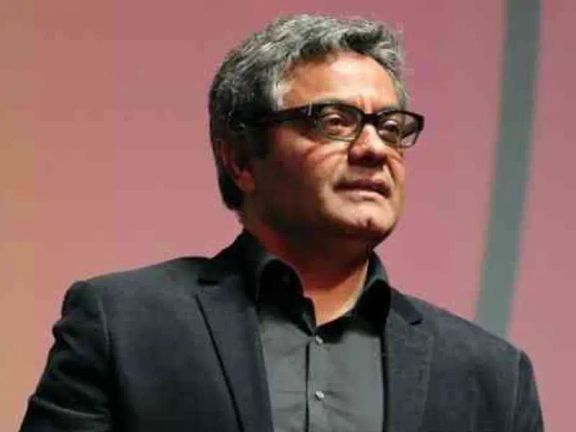
Iranian dissident filmmaker Mohammad Rasoulof has fled Iran, escaping on foot through rugged mountainous borders after receiving an eight-year prison sentence for his film about Iran’s recent uprising.
In a statement released Monday, the artist said: “I arrived in Europe a few days ago after a long and complicated journey. About a month ago, my lawyers informed me that my eight-year prison sentence was confirmed in the court of appeal and would be implemented on short notice.
“Knowing that the news of my new film would be revealed very soon, I knew that without a doubt, a new sentence would be added to these eight years. I didn’t have much time to make a decision. I had to choose between prison and leaving Iran. With a heavy heart, I chose exile. The Islamic Republic confiscated my passport in September 2017. Therefore, I had to leave Iran secretly.”
Rasoulof’s film, The Seed of The Sacred Fig, delves into the protest movements in Iran following the death of Mahsa Amini in 2022. Amini's death in custody, allegedly for not adhering to hijab, ignited widespread protests across Iran.
Rasoulof emphasized that the global cinema community needs to actively support filmmakers who tackle sensitive topics. He advocated for a vocal and unequivocal defense of freedom of speech. According to Rasoulof, filmmakers who bravely resist censorship, rather than comply with it, find great encouragement in the backing of international film organizations. Drawing from his own experiences, he noted that such support is crucial and can prove invaluable in enabling them to persist with their work.
In an Instagram post, Rasoulof also declared, "From now on, I'll be one of the millions of Iranians living abroad who are impatiently waiting to bury you and your oppression system in the dustbin of history."
Mohammad Mehdi Esmaeili, Iran's Culture Minister, on Monday called the film “illegal”. The legal repercussions for Rasoulof, upheld on appeal, include imprisonment, lashes, a fine, and property confiscation.
The crackdown has not only targeted Rasoulof, a long-time dissident hated by the authorities, but also involved the film’s crew, some of whom have faced interrogation and travel bans.
Rasoulof has been restricted from leaving Iran since 2017 and was incarcerated from July 2022 until February 2023. He was released as part of an alleged mass amnesty in response to extensive protests throughout Iran.
Shortly after regaining his freedom, Rasoulof was informed of a new legal case against him related to his film There Is No Evil (2020), which, in his absence, secured the Golden Bear at the Berlin International Film Festival.
A familiar figure at the Cannes Film Festival, Rasoulof's previous works including Goodbye (2011), Manuscripts Don’t Burn (2013), and A Man Of Integrity (2017) have all been showcased there, each film critically examining the impacts of authoritarian governance.
Due to potential backlash from the Iranian authorities, the identities of the cast and crew, along with the plot and script details of his latest film, remain confidential.
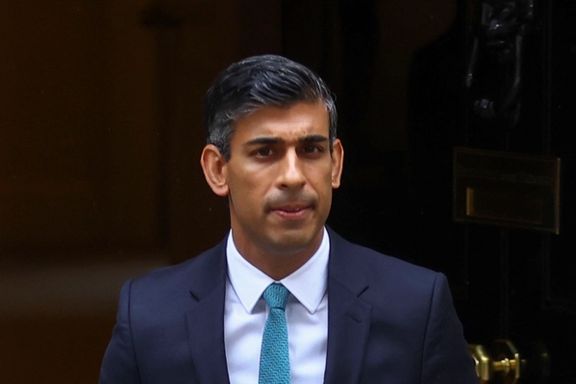
British Prime Minister Rishi Sunak underscored the escalating threats to Britain posed by what he termed the "axis of authoritarian states," including Iran.
In a major speech on Monday, he named Russia, China, Iran, and North Korea as countries working to “undermine” the UK’s values and warned that the threat is not distant, with hostile states already operating within the UK.
"These are not far away problems. Iranian proxies are firing on British ships in the Red Sea, disrupting goods destined for our high street," Sunak added, referring to the blockade initiated in November.
Iran-backed Houthi rebels have intensified their attacks on shipping lanes begun in November in support of Iran-backed Hamas in Gaza, specifically targeting vessels linked to Israel and its key allies, such as the United States and Britain. They claim to be forcing Israel into a ceasefire but have killed several non-Israeli seamen and taken dozens more hostage.
Moreover, speaking about conflicts around the world including the Middle East, Sunak highlighted Iran’s military and drone attack on Israel on April 13.
“War rages, too, in the Middle East as Israel defends itself not only against the terrorists of Hamas but a barrage of missiles fired – for the first time – directly from Iran,” Sunak stated.
The attack came in response to an alleged Israeli airstrike on Iran’s consulate in Damascus in which one senior Quds force commander was assassinated along with several senior IRGC figures.
Last year the chief of British security service MI5 named Iran as one of the UK’s biggest state threats. Attacks of Iran International journalists have taken place multiple times, mostly foiled but endangering the reporting team on British soil.
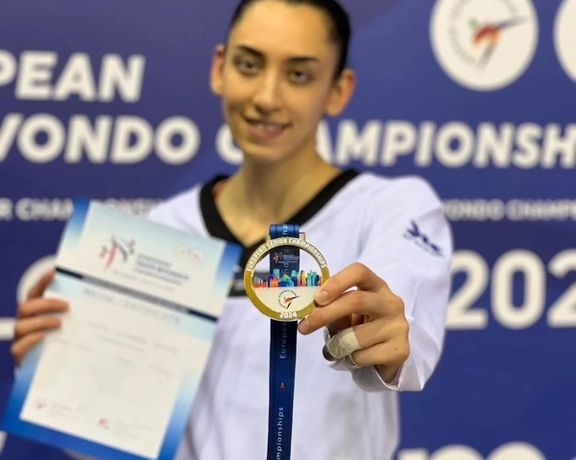
Kimia Alizadeh, an Iranian-born taekwondo athlete, clinched a gold medal at the 2024 European Championships in Belgrade on Sunday, marking her first competition under the Bulgarian flag.
Competing in the women’s 62kg weight class, Alizadeh defeated Great Britain’s Aaliyah Powell, a world youth champion, in a closely contested final, winning 2 rounds to 1.
Recently granted Bulgarian citizenship and having received her passport just a month ago, Alizadeh's triumph in Belgrade carries significant weight as she is now poised to represent Bulgaria at the forthcoming 2024 Paris Olympics.
The athlete's defection was explained in a candid social media post describing the regime's control over her life and career, stating, "I am not a history maker, nor the flag bearer of Iran. I am one of millions of oppressed Iranian women who have been dictated to for years. They controlled my every move, my clothing, and even my words. They used my medals to promote their own agenda."
Her defection is part of a broader trend with around 30 Iranian athletes having sought asylum in other countries in recent years in a range of sports. Factors influencing such decisions include mandatory hijab and a policy prohibiting competition against Israeli athletes.
